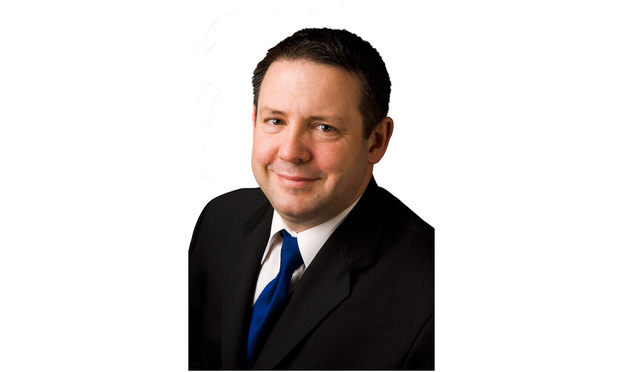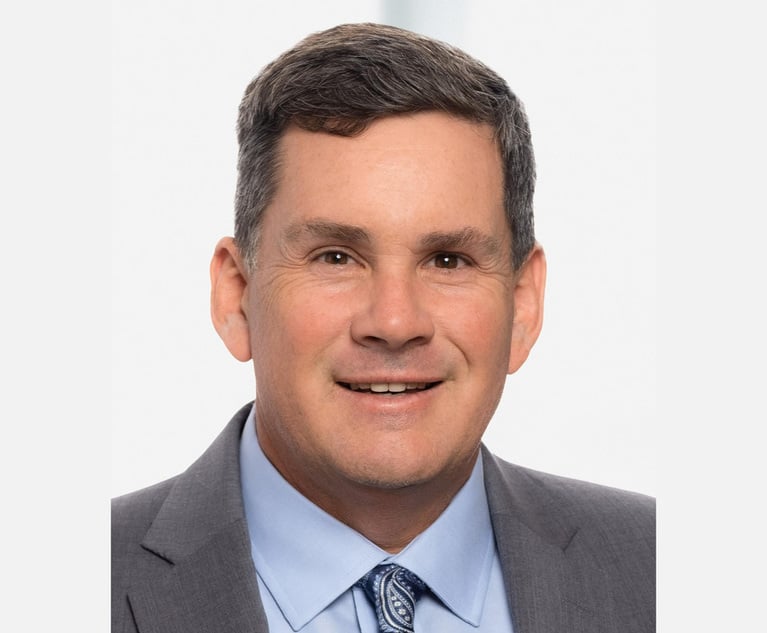TransPerfect Promises to Expose Skadden's 'Questionable Billing'
A familiar cast of characters, led by former Harvard law professor Alan Dershowitz, is set to return to Wilmington Thursday afternoon for a contempt hearing in a bitter billing dispute with the custodian appointed to oversee TransPerfect's forced sale in 2015.
October 09, 2019 at 06:13 PM
6 minute read
The original version of this story was published on Delaware Law Weekly
 Phil Shawe, co-founder and Co-CEO at TransPerfect.
Phil Shawe, co-founder and Co-CEO at TransPerfect.
Nearly a year and a half after Philip R. Shawe won control of TransPerfect Global Inc. in a Chancery Court-ordered auction, the drama surrounding Delaware's most vexing legal saga still has yet to subside.
A familiar cast of characters, led by former Harvard law professor Alan Dershowitz, is set to return to Wilmington on Thursday afternoon in a bitter billing dispute with the custodian appointed to oversee TransPerfect's forced sale in 2015.
The latest escalation centers on bills that the custodian Robert Pincus, a partner with Skadden, Arps, Slate, Meagher & Flom, has been sending the company for ongoing work he says is related to TransPerfect's sale. While the billing must be approved by Chancery Court Chancellor Andre G. Bouchard, it is not required to be made public, and Shawe said he and his team have not been able to access itemized expenses detailing the charges.
In response, TransPerfect, a New York-based translation-services company, has stopped paying those bills altogether. And in August the company filed suit in its new home state of Nevada, seeking a declaration that it is under no obligation to indemnify Pincus for his role as custodian.
The company argues that a 2015 director indemnification agreement required Pincus to provide documentation of his fees in advance and allowed billing disputes to be heard in any court of "competent jurisdiction."
Pincus, for his part, has called the lawsuit a "vexatious" attempt to justify Shawe's "flagrant violation" of Chancery Court orders, including one designating the Chancery Court as the exclusive jurisdiction for disputes stemming from the court's orders and proceedings.
He likewise has brushed off TransPerfect's assertions regarding the 2015 contract, saying the agreement did not apply to the Nevada suit and that it had not been a part of the company's earlier court filings.
In August, he moved to hold Shawe and TransPerfect in contempt by assessing "meaningful" monetary sanctions, as well as an anti-suit injunction to protect the Delaware court's jurisdiction.
A hearing on Pincus' contempt motion is set for 2:30 p.m. Thursday in Bouchard's Wilmington court room, according to the Chancery Court's calendar.
While the latest escalation has managed to raise a new issue of contention in the 5-year-old litigation, it has also dredged up the case's ugly past of mudslinging and accusations of misconduct.
In an Aug. 26 court filing, Pincus' attorney, fellow Skadden partner Jennifer Voss, said Shawe had made a "pernicious pattern" out of defying Chancery Court orders, specifically citing the $7.1 million sanctions award against him in 2016 for "unusually deplorable behavior," which included deleting evidence and lying under oath.
"Today, the same deliberate violation of court orders is occurring, and the custodian respectfully submits that this conduct needs to be stopped, now and decisively," she said.
In addition to the money sanctions, Voss said, an anti-suit injunction would force Shawe to comply with his billing obligations and also protect the custodian from having to defend himself in lawsuits filed elsewhere.
Shawe, meanwhile, has accused Pincus of commissioning a "sweeping review" of the Nevada lawsuit and then passing it off as proper billing of TransPerfect in the Court of Chancery.
Shawe claimed that TransPerfect's Nevada suit "promises to expose" Pincus' "questionable" billing, prompting the custodian to go on offense in the Chancery Court, where he "complained of contempt to the court, selectively revisited the past to create prejudice" and hid the director indemnification agreement.
"When [TransPerfect] became aware of Pincus and Skadden's gambit, it refused to pay and sought clarity about the claimed amounts due," Shawe attorney David L. Finger of Finger & Slanina wrote in a court filing. "Instead of working it out through disclosure, discussion and compromise, Pincus issued threats and 'reserved rights' while continuing to generate bills for dubious work."
Voss did not return a call this week seeking comment on behalf of Pincus.
To argue his position at Thursday's contempt hearing, Shawe has reconnected with Dershowitz, the famed attorney who argued before the Delaware Supreme Court in 2017 that TransPerfect's forced sale had violated the Takings Clause of the U.S. Constitution. That encounter ended with Chief Justice Leo E. Strine Jr. shouting down Dershowitz from the bench, after the professor went over his allotted time trying to clarify a point with the court's five judges.
Dershowitz said in an interview that Thursday's argument would raise a series of ethical, constitutional and contractual issues as to why specifics of Pincus' billing should be released.
"I've never seen a situation where a lawyer wanted to get paid for a bill, and doesn't share the specifics of the bill," Dershowitz said.
"The court should be reviewing the bills in detail, with our input," and not simply "rubber-stamping" them, he said.
A divided state Supreme Court upheld TransPerfect's sale in February 2017. The ruling handed a stinging defeat to Shawe, who had fought co-founder Elizabeth Elting's request that the company be sold due to an intractable deadlock between the two owners.
Shawe, however, later won his $770 million bid to purchase Elting's stake and take full control of TransPerfect in an auction that was overseen by Pincus. Still, Shawe has been fiercely critical of Bouchard's handling of the case, and last summer reincorporated his business in Nevada. He continues to press for more transparency and accountability on the Chancery Court.
Thursday's hearing also comes just weeks after a TransPerfect-linked group, Citizens for a Pro-Business Delaware, funded an ad attacking Bouchard's wealth and connections as part of a pressure campaign aimed at keeping him from being nominated to an opening on the high court. The group's leader, Chris Coffey, has raised similar concerns about billing in the case, but denies taking any money or direction from Shawe.
It was not clear how an adverse ruling might impact TransPerfect's suit in Nevada, though Dershowitz said Shawe's team was prepared to "pursue all legal remedies."
"We have a number of options available," he said.
Read More:
Bouchard Approves Shawe's $770M Purchase of TransPerfect
Pro-Business Group's Ad Targeting Chancellor Elicits Anger in Delaware
In Parting Shot, Shawe Hits Actions of Del. Courts as Reason for TransPerfect's Nev. Move
This content has been archived. It is available through our partners, LexisNexis® and Bloomberg Law.
To view this content, please continue to their sites.
Not a Lexis Subscriber?
Subscribe Now
Not a Bloomberg Law Subscriber?
Subscribe Now
NOT FOR REPRINT
© 2025 ALM Global, LLC, All Rights Reserved. Request academic re-use from www.copyright.com. All other uses, submit a request to [email protected]. For more information visit Asset & Logo Licensing.
You Might Like
View All

Labaton’s Eric Belfi on Running Case Investigation, Analysis and Delaware Presence

Chancery Stays Action Pending Resolution of a Motion to Dismiss in a First-Filed Action to Which the Defendant Is Not a Party
5 minute read
Chancery Court Exercises Discretion in Setting Bond in a Case Involving Share Transfer Restriction
6 minute readTrending Stories
- 1Houston Law Firm Files $250K Breach of Contract Suit Against 2 Former Lawyers
- 2The Week in Data Feb. 3: A Look at Legal Industry Trends by the Numbers
- 3Mass Tort Cases: Challenges for Plaintiff’s and Defense Counsel
- 4Litigator of the Week Runners-Up and Shout-Outs: Davis Wright Tremaine, Wilmer and More
- 5Forum Clause Axes $844M Case Against Reinsurer Over Deadly Plane Crash, Judge Rules
Who Got The Work
J. Brugh Lower of Gibbons has entered an appearance for industrial equipment supplier Devco Corporation in a pending trademark infringement lawsuit. The suit, accusing the defendant of selling knock-off Graco products, was filed Dec. 18 in New Jersey District Court by Rivkin Radler on behalf of Graco Inc. and Graco Minnesota. The case, assigned to U.S. District Judge Zahid N. Quraishi, is 3:24-cv-11294, Graco Inc. et al v. Devco Corporation.
Who Got The Work
Rebecca Maller-Stein and Kent A. Yalowitz of Arnold & Porter Kaye Scholer have entered their appearances for Hanaco Venture Capital and its executives, Lior Prosor and David Frankel, in a pending securities lawsuit. The action, filed on Dec. 24 in New York Southern District Court by Zell, Aron & Co. on behalf of Goldeneye Advisors, accuses the defendants of negligently and fraudulently managing the plaintiff's $1 million investment. The case, assigned to U.S. District Judge Vernon S. Broderick, is 1:24-cv-09918, Goldeneye Advisors, LLC v. Hanaco Venture Capital, Ltd. et al.
Who Got The Work
Attorneys from A&O Shearman has stepped in as defense counsel for Toronto-Dominion Bank and other defendants in a pending securities class action. The suit, filed Dec. 11 in New York Southern District Court by Bleichmar Fonti & Auld, accuses the defendants of concealing the bank's 'pervasive' deficiencies in regards to its compliance with the Bank Secrecy Act and the quality of its anti-money laundering controls. The case, assigned to U.S. District Judge Arun Subramanian, is 1:24-cv-09445, Gonzalez v. The Toronto-Dominion Bank et al.
Who Got The Work
Crown Castle International, a Pennsylvania company providing shared communications infrastructure, has turned to Luke D. Wolf of Gordon Rees Scully Mansukhani to fend off a pending breach-of-contract lawsuit. The court action, filed Nov. 25 in Michigan Eastern District Court by Hooper Hathaway PC on behalf of The Town Residences LLC, accuses Crown Castle of failing to transfer approximately $30,000 in utility payments from T-Mobile in breach of a roof-top lease and assignment agreement. The case, assigned to U.S. District Judge Susan K. Declercq, is 2:24-cv-13131, The Town Residences LLC v. T-Mobile US, Inc. et al.
Who Got The Work
Wilfred P. Coronato and Daniel M. Schwartz of McCarter & English have stepped in as defense counsel to Electrolux Home Products Inc. in a pending product liability lawsuit. The court action, filed Nov. 26 in New York Eastern District Court by Poulos Lopiccolo PC and Nagel Rice LLP on behalf of David Stern, alleges that the defendant's refrigerators’ drawers and shelving repeatedly break and fall apart within months after purchase. The case, assigned to U.S. District Judge Joan M. Azrack, is 2:24-cv-08204, Stern v. Electrolux Home Products, Inc.
Featured Firms
Law Offices of Gary Martin Hays & Associates, P.C.
(470) 294-1674
Law Offices of Mark E. Salomone
(857) 444-6468
Smith & Hassler
(713) 739-1250






